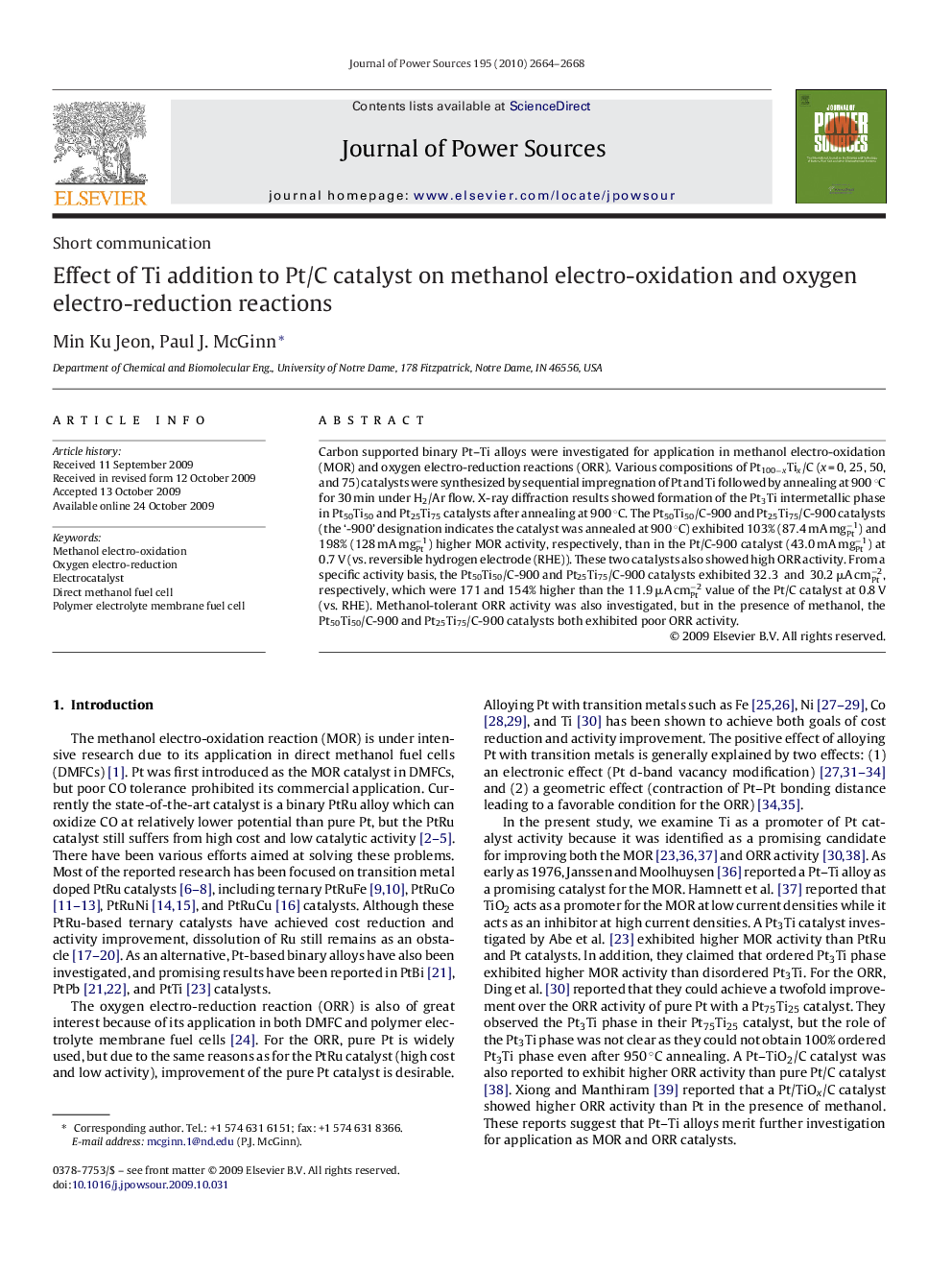| Article ID | Journal | Published Year | Pages | File Type |
|---|---|---|---|---|
| 1285019 | Journal of Power Sources | 2010 | 5 Pages |
Carbon supported binary Pt–Ti alloys were investigated for application in methanol electro-oxidation (MOR) and oxygen electro-reduction reactions (ORR). Various compositions of Pt100−xTix/C (x = 0, 25, 50, and 75) catalysts were synthesized by sequential impregnation of Pt and Ti followed by annealing at 900 °C for 30 min under H2/Ar flow. X-ray diffraction results showed formation of the Pt3Ti intermetallic phase in Pt50Ti50 and Pt25Ti75 catalysts after annealing at 900 °C. The Pt50Ti50/C-900 and Pt25Ti75/C-900 catalysts (the ‘-900’ designation indicates the catalyst was annealed at 900 °C) exhibited 103% (87.4 mA mgPt−1) and 198% (128 mA mgPt−1) higher MOR activity, respectively, than in the Pt/C-900 catalyst (43.0 mA mgPt−1) at 0.7 V (vs. reversible hydrogen electrode (RHE)). These two catalysts also showed high ORR activity. From a specific activity basis, the Pt50Ti50/C-900 and Pt25Ti75/C-900 catalysts exhibited 32.3 and 30.2 μA cmPt−2, respectively, which were 171 and 154% higher than the 11.9 μA cmPt−2 value of the Pt/C catalyst at 0.8 V (vs. RHE). Methanol-tolerant ORR activity was also investigated, but in the presence of methanol, the Pt50Ti50/C-900 and Pt25Ti75/C-900 catalysts both exhibited poor ORR activity.
